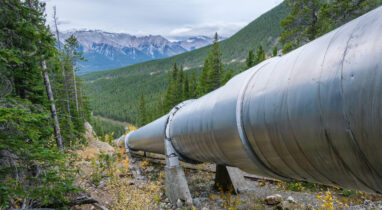Industrial carbon markets are the most flexible and cost-effective way to incentivize industry to reduce emissions, and industrial carbon pricing is the “backbone of decarbonization across this country,” says an open letter from industry to Canada’s provincial environment ministers, sent today.
Clean Prosperity signed the letter alongside 12 leading industry associations and firms from across Canada.
“We write to raise concerns about how provincial carbon markets work together, or rather how they do not,” the letter says. “The disconnect across nine different markets makes it harder to invest in major projects in Canada. It is holding back capital, economic growth, jobs, and decarbonization. We need to act now to fix this.”
Signatories to the letter include Alberta’s Industrial Heartland Association, Canadian Manufacturers & Exporters, the Canadian Renewable Energy Association, the Canadian Steel Producers Association, Carbon Removal Canada, the Cement Association of Canada, the Chemistry Industry Association of Canada, Clean Prosperity, Enhance Energy, Heidelberg Materials, Kiwetinohk Energy, Itoa Energy, and Lafarge.
“We write to raise concerns about how provincial carbon markets work together, or rather how they do not,” the letter says.
The group proposes five fixes to help Canada’s industrial carbon markets achieve their full potential:
- Remove interprovincial trade barriers. Carbon credits generated in one province should be recognized in another, and industry should be free to buy and sell carbon credits across provincial borders.
- Create and align high-integrity offset protocols. High-integrity offsets mean emissions reductions or removals that are “permanent, additional, and verifiable.” We need to start now to align those protocols to boost decarbonization.
- Make credit markets transparent. Better transparency would “encourage greater participation, inspire investor confidence, and facilitate investment.”
- Enhance revenue recycling. Provinces should reinvest 100% of industrial carbon pricing revenues back into industry to accelerate further decarbonization.
- Engage on measures at the border to support vulnerable sectors. Border measures can help to prevent carbon leakage to jurisdictions with less advanced climate policies. “Provinces should push the federal government to accelerate the conversation about climate policy and the global competitiveness of Canadian industry.”
Canada is now less than two years away from the scheduled 2026 review of industrial carbon pricing systems. The time to start work on this is now. “To be successful, we need provincial leaders working together towards a common vision for decarbonization in this country,” the letter says. “Our economy and environment depend on it.”




